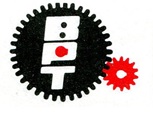When you download any software or use a particular service, you may be asked to agree to the terms and conditions put forth in an End User License Agreement (EULA). This document outlines the rights and responsibilities of both the software developer and the end-user. In this article, we will explore what an EULA is and provide an example of an EULA from APEX, a popular web development platform.
What is an End User License Agreement (EULA)?
An End User License Agreement (EULA) is a legal contract between the software developer and the end-user. When you download or install software, you are indicating your agreement to the terms of the EULA, which is typically presented in a pop-up window or during the installation process.
An EULA defines the rights and responsibilities of both parties. It outlines what the end-user can and cannot do with the software, as well as the limitations placed on the developer. Common provisions in an EULA include restrictions on copying or distributing the software, warranties or guarantees, and limitations of liability.
EULAs are designed to protect the developer`s intellectual property rights and limit their liability in the event of any legal disputes. They also provide protection for the end-user by setting out clear guidelines for how the software can be used and what can be expected from the developer.
Example of an EULA from APEX
APEX is a web development platform designed to help users rapidly build and deploy web applications. When you sign up for APEX, you will be asked to agree to their EULA. Here is an excerpt from their EULA:
“Subject to Your compliance with the terms and conditions of this Agreement, APEX grants You a non-exclusive, non-transferable, non-sublicensable, limited license to use the Platform in accordance with the Documentation solely for the purpose of developing and deploying Web Applications.
You may not copy, modify, distribute, sell, or transfer any part of the Platform or Documentation without the prior written consent of APEX. You may not reverse engineer, decompile, disassemble, or otherwise attempt to derive the source code or structure of the Platform.
APEX does not warrant that the Platform will operate uninterrupted or error-free. In no event shall APEX be liable for any indirect, incidental, special, or consequential damages arising out of or in connection with this agreement or use of the Platform.”
This excerpt outlines that the end-user is given a limited license to use the APEX platform for the purpose of developing and deploying web applications. It also sets restrictions on copying, modifying, or distributing any part of the platform without the prior written consent of APEX. Finally, the EULA includes a limitation of liability clause, which protects APEX from any indirect or consequential damages that may arise through the use of their software.
In conclusion, EULAs are an essential part of any software agreement between the developer and the end-user. They help to clarify expectations, limit liability, and protect the intellectual property rights of the developer. APEX`s EULA is just one example of how these agreements are structured and what provisions they include. It is important to read and understand the EULA before agreeing to the terms and using a particular software product or service.”
